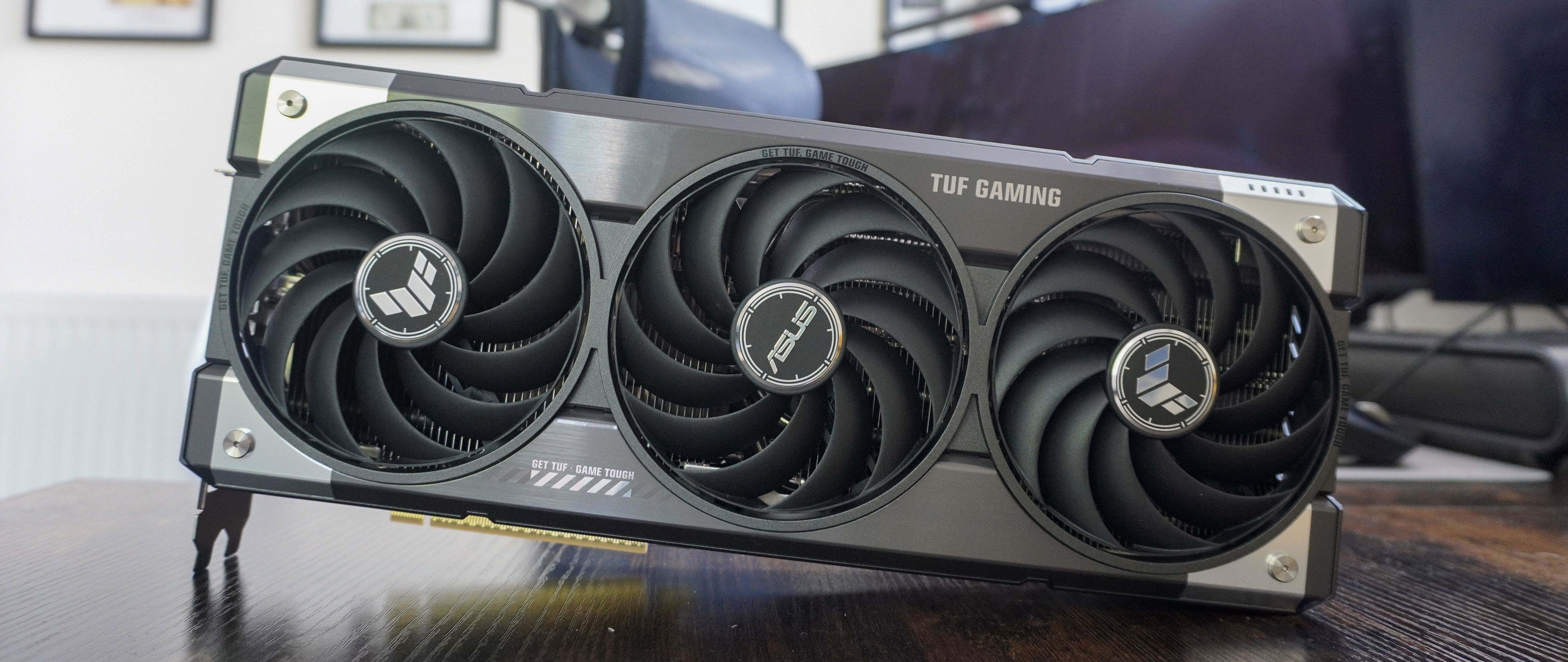Tom's Guide Verdict
The RTX 5070 Ti is the Goldilocks GPU in Nvidia’s entire 50-series – just the right amount of blistering performance, versatility across games at 1440p and 1080p, and a true showcase of DLSS 4 AI trickery with buttery 4K smoothness. The productivity boosts are huge too. Just keep two things in mind: you don’t need this if you already have a 4070, and wait for that MSRP to come true.
Pros
- +
Supreme 1440p and 1080p gaming
- +
Shockingly good 4K performance too
- +
Content creation and AI workloads are a breeze
- +
16GB video memory
- +
MSRP GPUs are available in the U.K.
Cons
- -
MSRP is a lie in the U.S.
- -
High power consumption when idle
Why you can trust Tom's Guide
I’ve played games on Nvidia’s entire RTX 50-series lineup, and out of all of them, the RTX 5070 Ti is the sweet spot – high-enough specs, enough pure rendering horsepower and the right amount of DLSS 4 AI trickery to be the best of all worlds at all resolutions to all players. That is providing you buy it at the recommended retail price.
In the U.K., this is not a problem. You can snag one right now at £10 below MSRP right now from Overclockers, as stock has finally normalized. But the U.S. is still in a bit of a tight spot at the moment with prices in excess of $100 over that $749 MSRP.
That’s not to say you’re getting a bad GPU. In fact, this is the best of Nvidia’s current generation – unlocking enough of what Blackwell architecture can do with 16GB of GDDR7 video memory on a much faster 256-bit bus, and a strong increase in AI tensor cores and rendering CUDA cores.
All of that means a real leap over the RTX 5070 that leaves it in the dust, and a real high-end feel to everything over the RTX 5060 Ti, and even gives the RTX 5080 a run for its money.
This is the MVP in terms of giving you esports-tier blazing frame rates at up to 1440p, with silky smoothness capable with DLSS at everything turned up to max. Plus, this all adds to this being an AI and content creation workload monster too.
But you all know the RTX 50-series script by now. If you don’t, let me break it down:
- If you already have an RTX 40-series GPU: You already have the Blackwell architecture and access to that crucial transformer model generational upgrade to DLSS. You don’t need to buy it.
- If you have an older GPU: This is definitely a sound buy, but…
- Wait for MSRP to appear: The value for money proposition is a strong one with what the RTX 5070 Ti can pull off, but if you’re in the States, wait for that price to finally appear (or within $30-$50 range of it if you can stretch to that).
Got it? Good. Now let me tell you about my time with it.
Get instant access to breaking news, the hottest reviews, great deals and helpful tips.
For frame of reference, we are using some testing data from our friends over at Tom’s Hardware. If you're looking for more dense detail and analysis on specific cards, our sister site is the best place to go!
Nvidia GeForce RTX 5070 Ti: Cheat Sheet
- What is it? This is a higher mid-range PC graphics card.
- Who is it for? This is for PC gaming enthusiasts who are looking for the best balance of 1440p gaming with 4K potential through AI upscaling and frame generation
- What does it cost? MSRP starts at $749/£729. While that price is readily available in the U.K., there’s a $100 premium on a lot of the stock in U.S.
- What do I like? This feels like a properly high-end card in what it is capable of, while not having the same ludicrous prices of RTX 5080 and 5090 – 1440p rendering performance is strong, DLSS 4 shines at 4K, content creation and AI workloads are zippy on here, and the value for money case in the U.K. is a strong one.
- What don’t I like? However, in the U.S., retail price is simply non-existent at the moment with big increases. On top of that, to get those performance increases, the power draw when idle is pretty significant.
Nvidia GeForce RTX 5070 Ti: Specs
| Header Cell - Column 0 | RTX 5070 Ti | RTX 4070 Ti Super |
|---|---|---|
Price (MSRP) | $749 | $799 |
Video memory | 16GB GDDR7 | 16GB GDDR6X |
RT Cores | 70 4th Gen cores | 66 3rd Gen cores |
Tensor Cores | 280 5th Gen cores | 264 4th Gen cores |
CUDA Cores | 8,960 | 8,448 |
Power consumption (TDP) | 300W | 285W |
Ports | 1x HDMI 2.1b, 3x DisplayPort 2.1b | 1x HDMI 2.1, 3x DisplayPort 1.4a |
The Tom’s Guide test PC
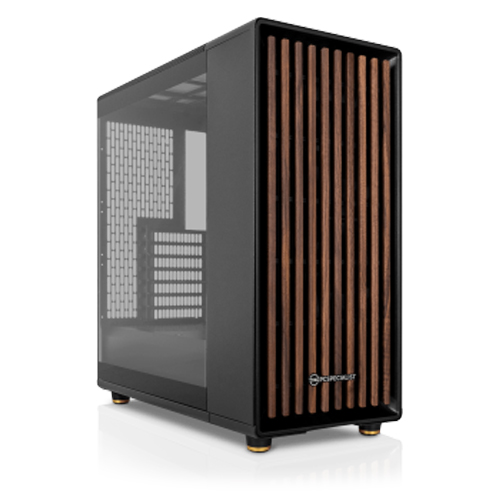
Housed in the elegant Fractal North chassis, this powerhouse build features AMD's Ryzen 7 9800X3D processor, paired with 32GB of high-speed Corsair DDR5 memory and the blazing-fast WD_Black SN8100 PCIe Gen 5 SSD from SanDisk. Power is delivered by a robust 850W Corsair PSU, while all components are anchored to the Asus TUF Gaming B850-Plus motherboard with built-in Wi-Fi 7. Keeping temperatures in check and performance consistent is the FrostFlow 200 Series cooler, ensuring no thermal throttling under load.
Nvidia GeForce RTX 5070 Ti: 3DMark tests
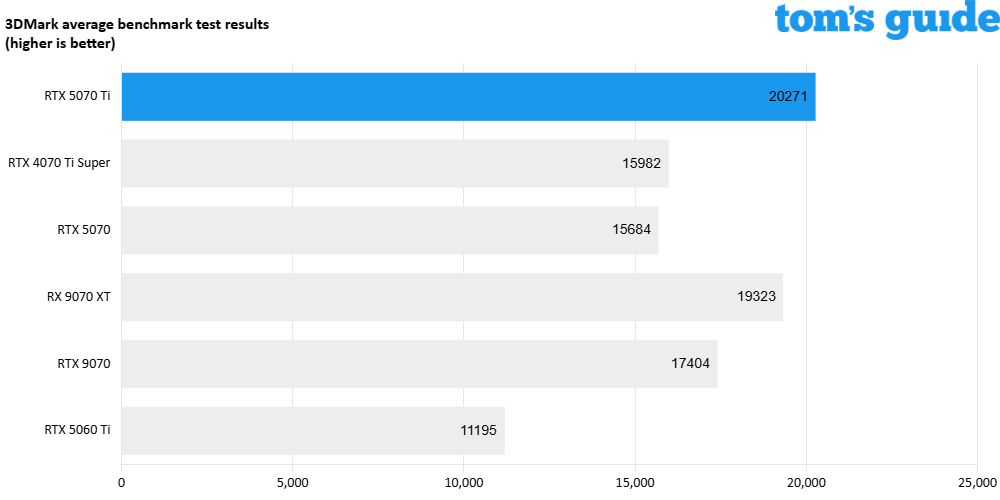
Nvidia GeForce RTX 5070 Ti: The ups
The MSRP may not be holding Stateside, but that doesn’t stop the RTX 5070 Ti really shining as the mid-range beacon of a desktop gaming GPU.
Stellar gameplay across the board
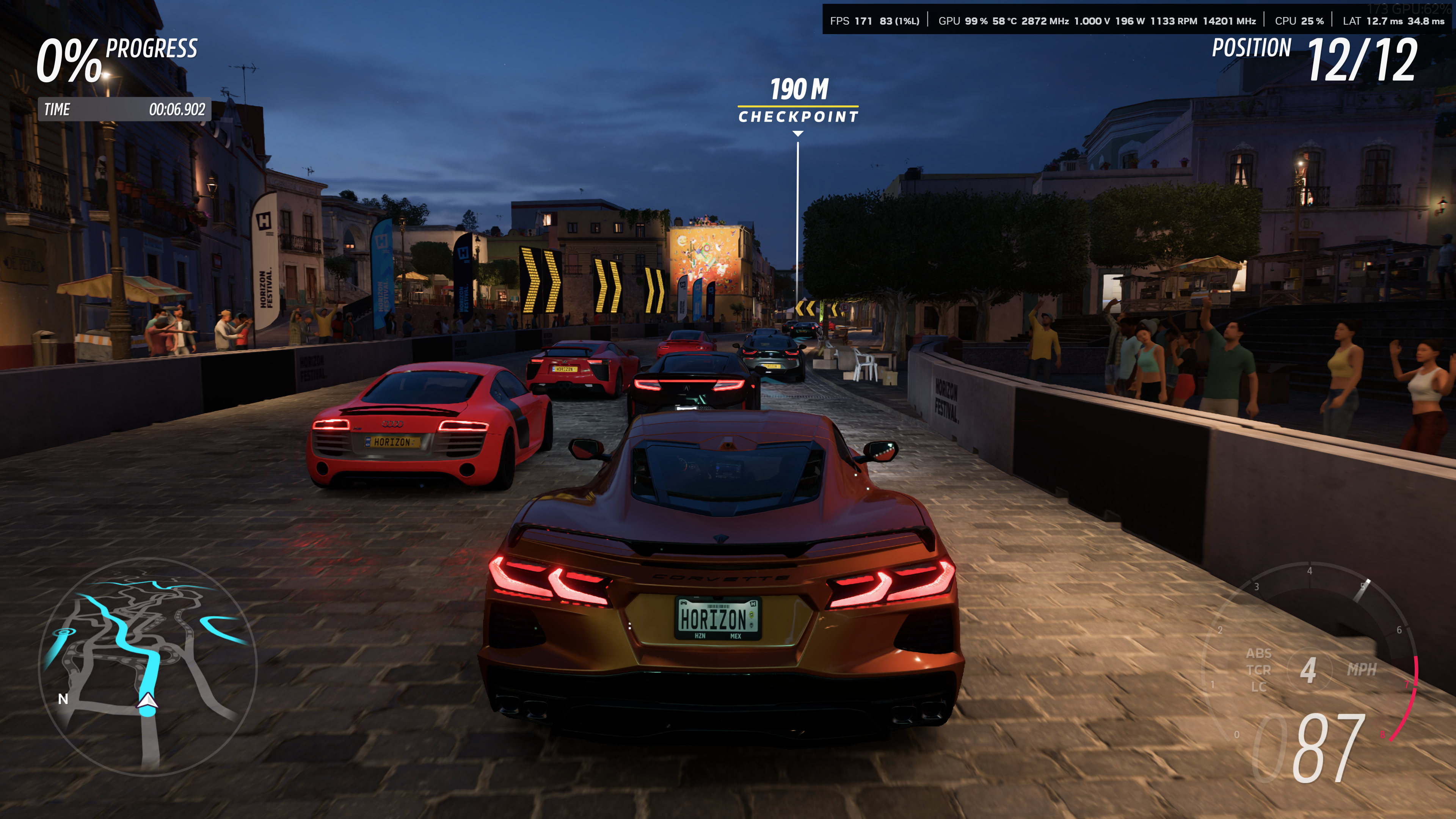
For raw rendering, the RTX 5070 Ti stands up as a fantastic GPU for getting blistering esports-level frame rates at 1080p, and looking incredible at 1440p. For 4K, you can get some solid 60+ FPS in certain well-optimized games, but that’s where DLSS will come in (more on that later).
GPU | Cyberpunk 2077 ray tracing ultra 1440p | Forza Horizon 5 max settings 1440p |
|---|---|---|
RTX 5070 Ti | 53 FPS | 196 FPS |
RTX 4070 Ti Super | 52.6 FPS | 126 FPS |
RTX 5070 | 41 FPS | 171 FPS |
RX 9070 XT | 47.3 FPS | n/a |
RX 9070 | 39.6 FPS | n/a |
RTX 5060 Ti | 30 FPS | 121 FPS |
Once again, it’s worth prefacing this by saying that the gap between this and the last generation is still within that 5-15% range that wouldn’t make this a smart buy over sticking with your RTX 4070 Ti Super. But to those on older GPUs or gaming enthusiasts looking for some real future-proofing, these are encouraging numbers.
Flick on the AI magic with DLSS 4 and multi-frame generation, and your frame rates take off like they just downed an energy drink — turbocharged and leaving your old numbers in the dust.
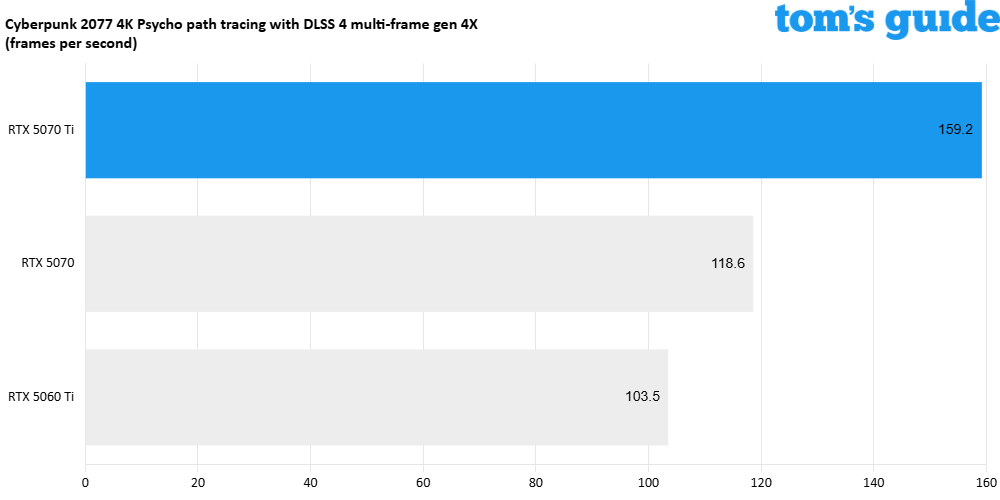
You already know how Nvidia’s AI trickery works here – moving from the convolutional neural network of DLSS 3 to work more like ChatGPT with a transformer model that is more accurate at analyzing scenes on the fly to smoothen frame rates.
The end result is barely noticeable ghosting around textures and significantly faster frame rates that don’t bring on much latency. This is always a concern as Nvidia crams AI generated frames between rendered frames, which doesn’t equate to making something feel more responsive to play.
But whether it’s zippy multiplayer games that require twitch reactions or more slower-paced single-player adventures, there were no issues with latency with Reflex and strong rasterization.
A real workhorse
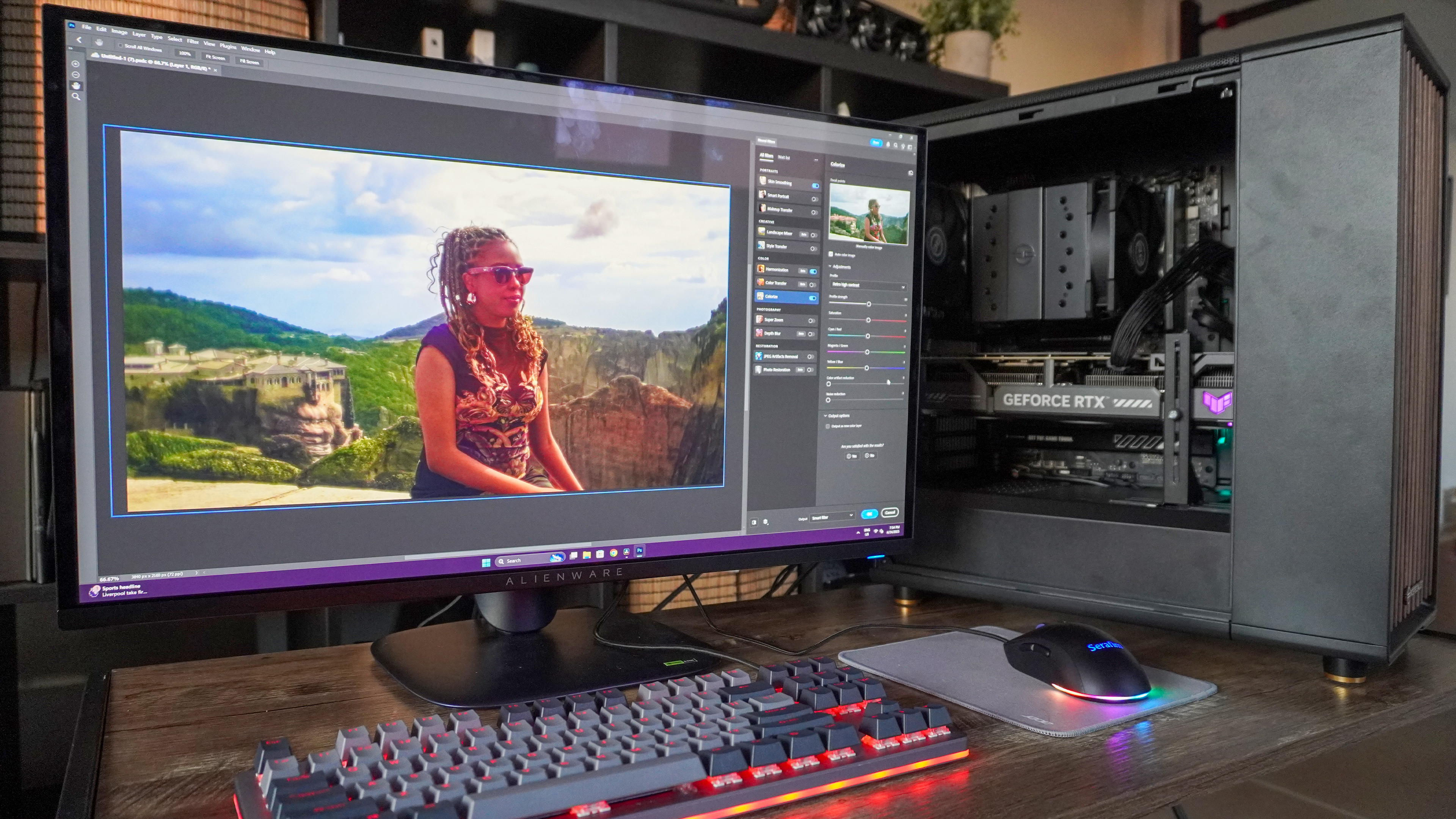
You can really notice a marked difference in GPU-intensive tasks like editing multiple layers of 4K video in Davinci Resolve or running on-device AI neural edits in Photoshop. Plus with support for the 4:2:2 color format, you gain access to a vastly more efficient format, which provides better flexibility and fidelity in all your grading.
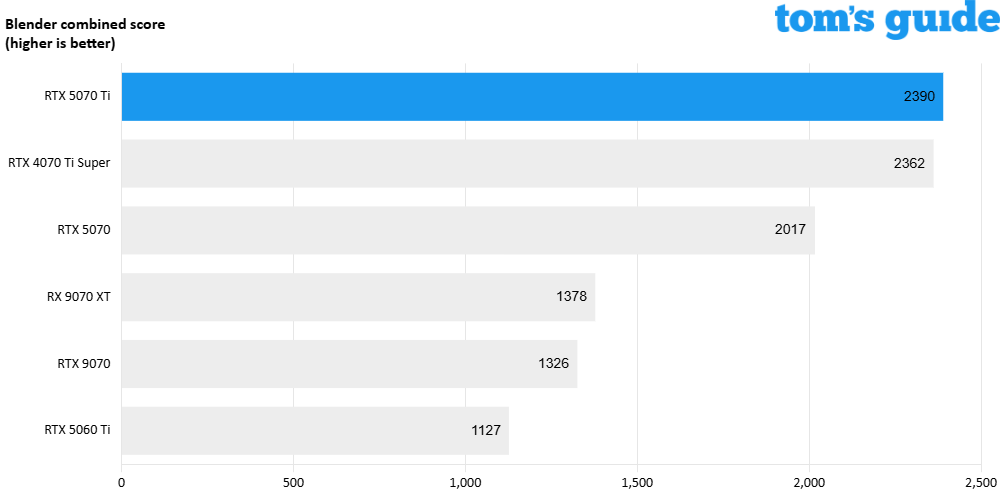
Blender is the key way to detect whether your GPU is going to be good at advanced content creation and animation, and these incredibly encouraging numbers are reflective of the experience you get. Most tasks go by in a flash and nothing feels insurmountable.
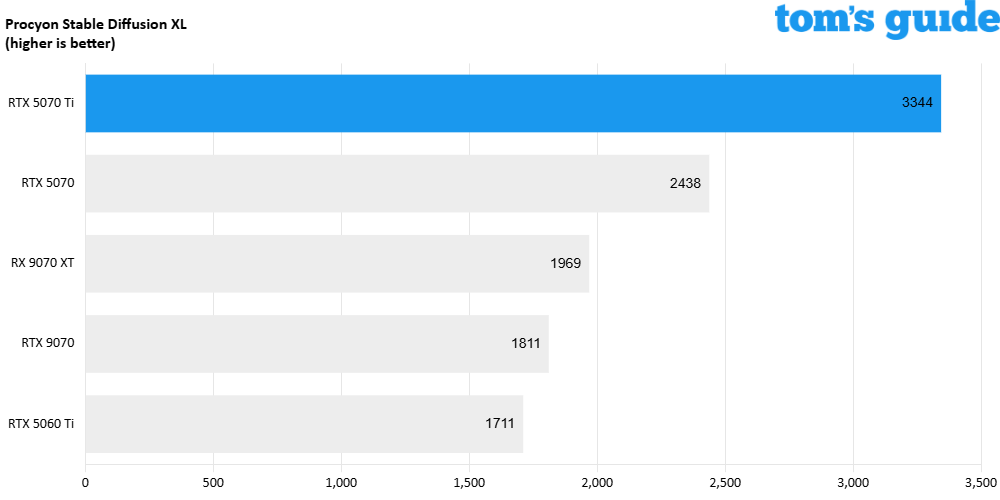
I always know that Nvidia is always going to have a leg up on the competition, being the AI company it is now and all. But by this point, it’s kind of funny to see how far ahead its consumer GPUs are in AI performance – not just improving game performance, but running AI-fueled tasks at the speed of light, running image generation and even running local LLMs.
Nvidia GeForce RTX 5070 Ti: The downs
That’s not to say the sweet spot doesn’t come with some hitches on the way for the RTX 5070 Ti.
Live in the U.S.? Don’t buy it yet!
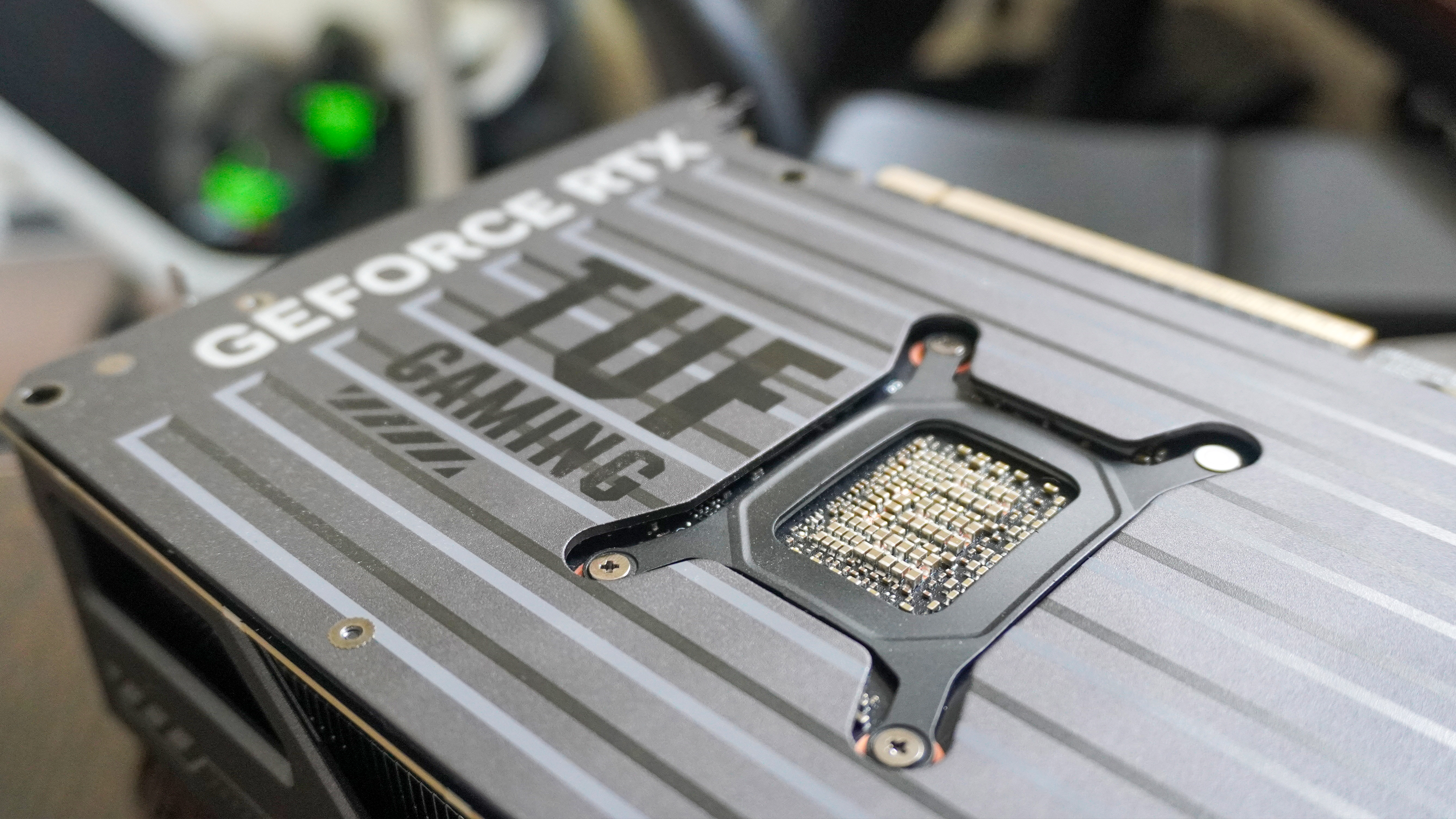
For my fellow Brits, it’s good news. The RTX 5070 Ti is readily available at the recommended retail price with little to no increases. In fact, the only price rises you’ll see is on brands who have gone OP with the cooling methods to allow for overclocking.
However, stock is slim in the U.S. and that is leading to some tough-to-swallow price rises. At a minimum, you could be paying $30 more, but it’s looking more like an average of a $85 scalp across all the retailers I’ve seen.
If you can wait, please do so!
Nvidia GeForce RTX 5070 Ti: Verdict
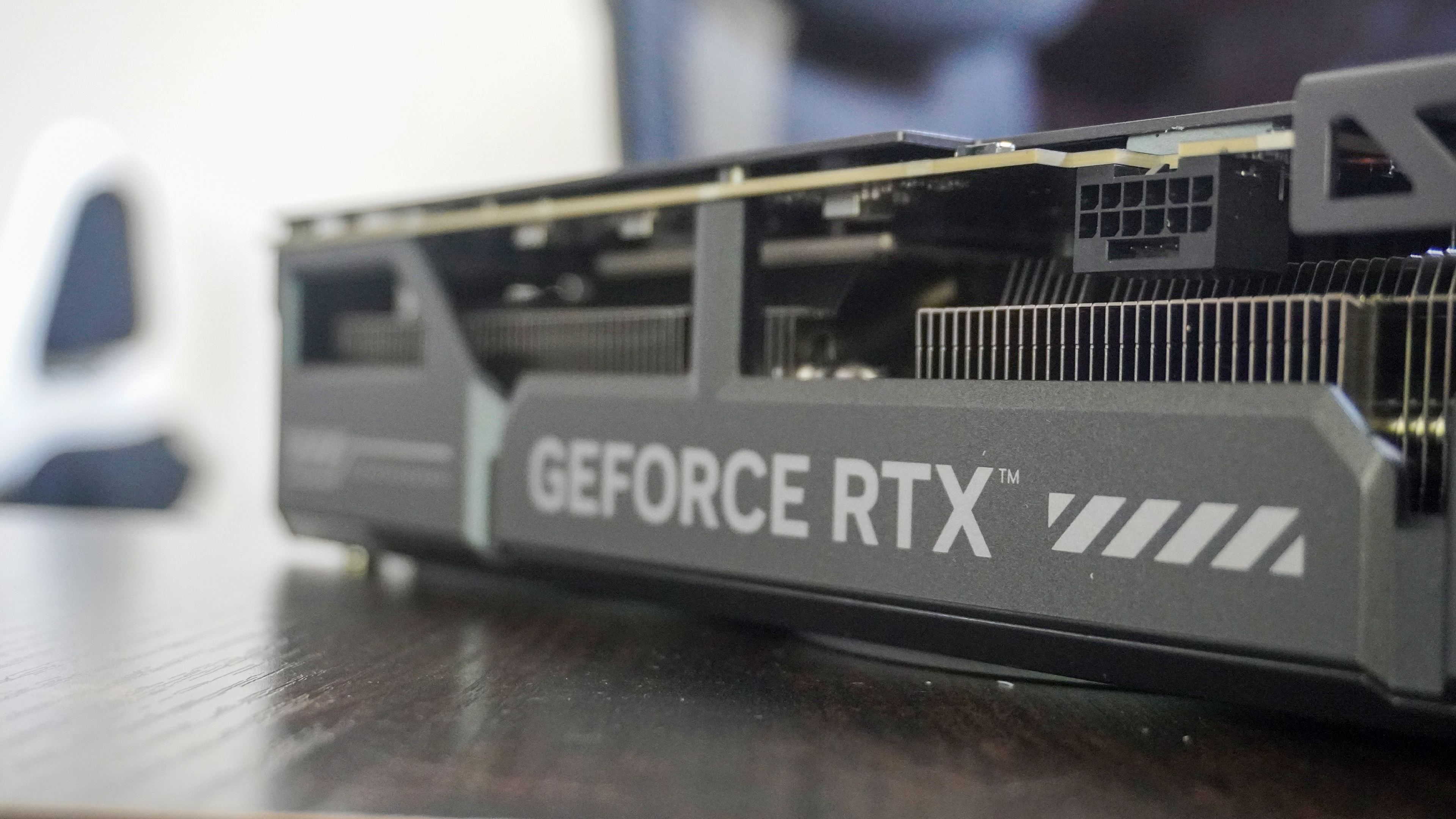
The RTX 5070 Ti is the sleeping giant of Nvidia’s RTX 50-series lineup – the one that is ideal for those of you who want the versatility to get great performance across all your games and GPU-intensive workloads without breaking the bank.
But “breaking the bank” continues to be a problem in the U.S., as MSRP seems to be a distant myth right now. Nvidia has told us that RTX 5070 Ti stock should be increasing with faster production times, but whether this will normalize the price, we’ll just have to wait and see.
For my fellow Brits, this isn’t a problem, and I recommend you buy now as you can get them at bang on (or slightly under) the recommended price. But to my mates in the States, hold your nerve for those prices to come down on one of the best GPUs you can buy right now.

Jason brings a decade of tech and gaming journalism experience to his role as a Managing Editor of Computing at Tom's Guide. He has previously written for Laptop Mag, Tom's Hardware, Kotaku, Stuff and BBC Science Focus. In his spare time, you'll find Jason looking for good dogs to pet or thinking about eating pizza if he isn't already.
You must confirm your public display name before commenting
Please logout and then login again, you will then be prompted to enter your display name.
